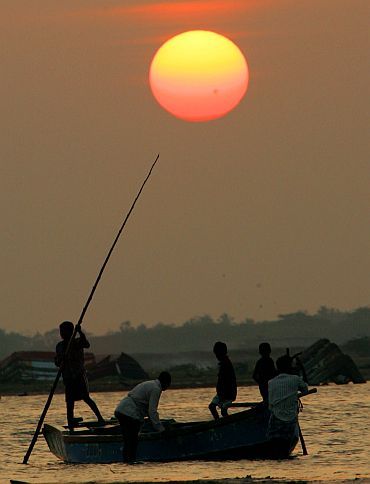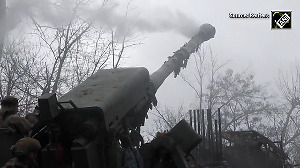 Pakistan’s external spy agency is trying to push its South Indian agenda
Pakistan’s external spy agency is trying to push its South Indian agenda
The birth of the Bodu Bala Sena, an extremist Singhalese Buddhist nationalist organisation in Colombo in 2012 was a significant event. The organisation was formed to enforce Buddhist supremacy in Sri Lanka, mainly targeting Christians and Muslims in the country.
The formation of this organisation was a turning point for Pakistan’s Inter-Services Intelligence, which had for years been trying to get a foothold in that country, but to no avail. This was partly because of the strength of the Liberation Tigers of Tamil Eelam which never allowed outsiders to set foot in Sri Lanka. The other reason could be that there was never any connect between Lankan Muslims and the spy agency.
The ISI’s plan was simple: Create a sense of insecurity among the Muslims so that they would look for cover and protection. The ISI would actively finance the BBS through indirect means, so that the atrocities against the Muslims grow. As a result, the Muslims would lean towards the ISI and their agents for protection.
According to a source, the ISI’s Colombo module began to strengthen only after the BBS came into prominence. The BBS unleashed its fury on the Muslims, in the form of violent attacks, calls for boycotts of Muslim-owned businesses and ban on halal food and headscarves. The ISI was just waiting for something like this to happen.
Around this time, the ISI was running its module from the Pakistan’s high commission headed by consular officer Amir Zubair Siddiqui. He gave a free rein to his men in the Muslim dominated areas in Sri Lanka, who spoke about the atrocities of the BBS and how the Muslims needed to be protected. Following that, from a meager group of five over the past 10 years, the ISI managed to rope in over 50 operatives in just one year.
For the ISI, the Colombo module is very important.
“They needed to set up a full-fledged network in the country only with an intention of targeting Southern India. The arrest of Arun Selvarajan is another reminder of how the ISI is trying to push its south India agenda,” says a source.
“The ISI had instructed them to gather as much information as possible and also provide as much logistics under the guise of an event management firm in Chennai. While major attacks in South India were part of the bigger plan, these operatives also were looking to set-up dedicated modules. They sought to set up a dedicated route between Colombo and the Kodikarrai fishing port in Tamil Nadu to use it as a dedicated smuggling route to pump in drugs, arms and ammunition, and also to send in cadres,” the source adds.
Operating out of the Koddikari fishing port has been the easiest for the ISI. The coastal security there is questionable and it has been an easy access route from the past 60 years.
The first signs of smuggling along this port began when Sri Lankan operatives would come in with opium in exchange for beedis. This port was later used by the Chinese who are alleged to be sending in arms into India to be parked in Kerala. The ISI is following the same route.











 © 2025
© 2025